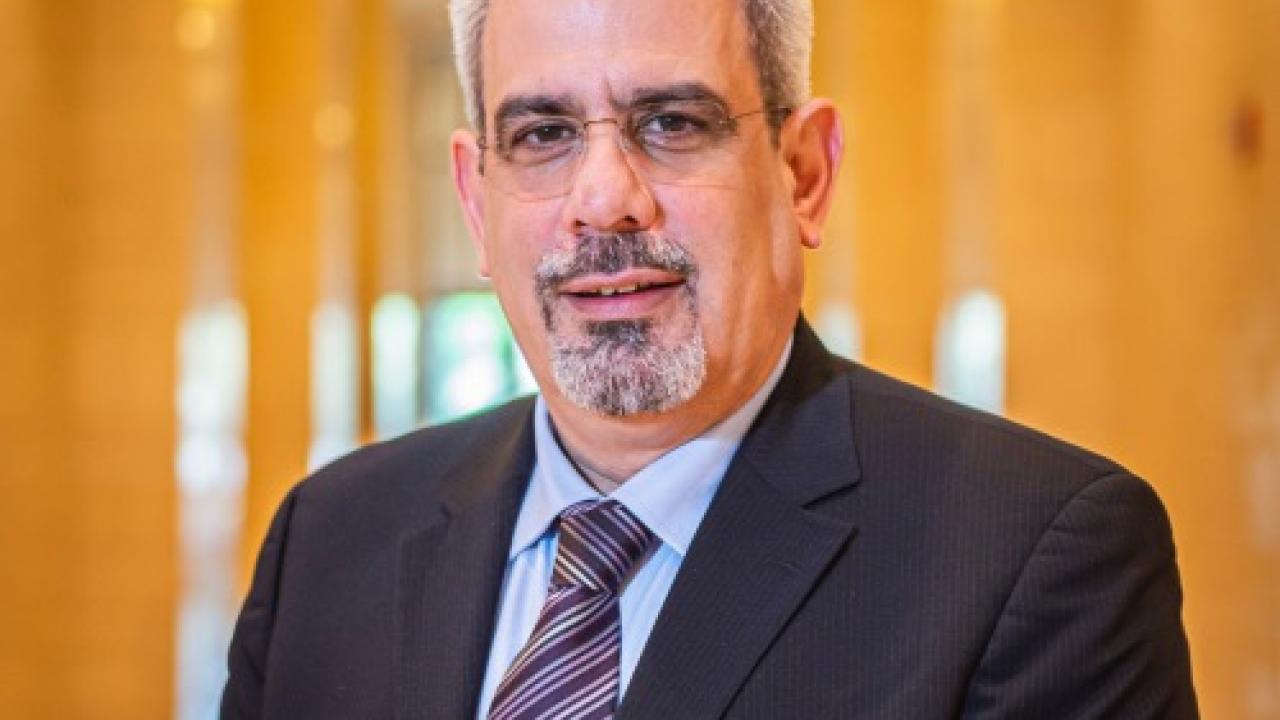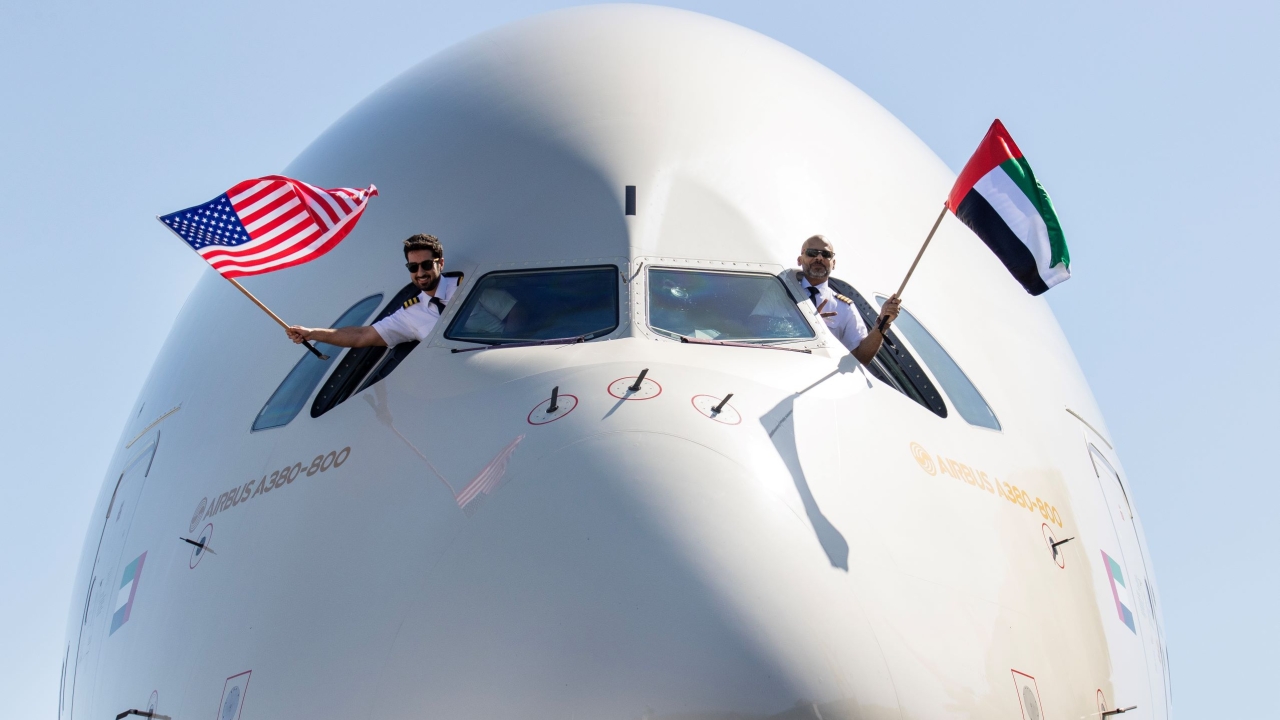United we standard
Kamil Al Awadhi has taken up the reins as vice president, Africa and Middle East, for the International Air Transport Association (IATA). He now plans to help steer airline recovery in the region, as he explained to Alan Peaford.

Kamil Al Awadhi: “My top priority, now, is getting the stakeholders in each state to meet internally and accept a standard that will be applied within the region, and, hopefully, then globally.” Picture: Billypix.
As the former chief executive of Kuwait Airways, Kamil Al Awadhi knows the feeling of shock and bewilderment that hit the aviation industry when Covid struck with a vengeance last year.
“We had nothing, no references, documents, or standard operating procedures to fall back on, so we had to create our own,” Al Awadhi recalled.
Kuwait was one of the first countries to lock down. “If you look at some of the pictures from then, we had our crew operating in these white suits from head to toe, and they looked like they were doing spacewalks. Nobody knew what Covid was, or how infectious it was. So it was a horrendous time.”
A year later and Al Awadhi is taking his experience and his empathy to his IATA role. Speaking from the association’s regional headquarters in Amman, he said Africa and the Middle East had been harder hit than most.
“I like what IATA’s new CEO, Willie Walsh, said – it wasn’t the airlines that stopped flying, it was the governments and authorities within each state,” he explained.
“My personal take on this is, yes, the EMEA region, the Middle East and Africa region, got hit harder. I think it was a simple reaction by individual states, without consulting anybody else, taking decisions out of fear for their populations. The consequence is massive damage to the aviation industry.
“You have to consider that airlines are cutting costs tremendously. It was one of the things I started doing in May of last year. And, of course, you know the quickest solution is to lay off staff. That’s unfortunate, but they [the airlines] are improving efficiencies, and so forth.
“One of the things that you have in front of you, day in and day out, is how much cash you have left.
“Of course, this pandemic also caused mistrust with handling agents and other companies etc. So, a lot of companies started asking for cash up front because they needed the money too. There was none of this IATA clearing house, or ‘we’ll send you the bill on the end of the month’.
“So that means that, as an airline, you need to have that cash in your hand.
“Subsequently, you don’t operate a flight if you’re going to lose on it because you can’t afford to do it anymore. You’re not building up a route, you’re trying to survive at this point. And so, immediately, the consequence is the price of tickets goes straight up.”
In his new role, Al Awadhi will be addressing governments across the region to try to find a balance between health concerns and the industry revival.
“As a CEO, I was frustrated at governments not talking,” he said. “It could be a state government not talking internally with its stakeholders – all stakeholders, and there are many, a lot more than most people think. And then, subsequent to that, I was frustrated that one state was not talking to another state.”
Al Awadhi cites examples of aircraft, with passengers on board, being halted because the destination state had changed flight filing rules. He has taken that experience to his new job.
“I’m still bleeding from my experience,” he said. “I want to use it to avoid airlines suffering even further because of the disconnects that are happening within a state and between states. That’s my focal point.
“I need to get the states to accept a standard that gets applied by them all. There’s no point, if a flight is from A to B, if A is sorted out yet B isn’t. That flight is not going to happen.”
IATA, along with partners like the International Civil Aviation Organization (ICAO) and the World Health Organization, is working to get a common travel pass on a mobile app that can be used by passengers to obtain and store their Covid-19 test results from accredited laboratories and vaccine records.
But, although some major airlines are testing an IATA system, there are still barriers.
“The only way you’re going to get everybody on board is by having them all on the same platform. The disconnect remains massive within this region. My top priority, now, is getting the stakeholders in each state to meet internally and accept a standard that will be applied within the region, and, hopefully, then globally,” he said.
Al Awadhi said that IATA member airlines – and many non-member airlines – had expressed interest in installing the travel pass into their booking systems.
Aside from Covid, IATA in Africa and the Middle East has other issues to challenge the new regional vice president. Key among these is blocked funds.
Some states – particularly in Africa – have held on to payments made in a local currency that should have been repatriated to the airline.
“When Covid hit us and we’re consuming cash, we’re burning through it; every airline can calculate per minute [how much it is losing] while it’s on the ground. So, the first immediate thing is to look for all your money, bring it in from all the outstations – every airline has bank accounts at outstations for things like sales. You literally need to build cash,” Al Awadhi explained.
“So, blocked funds in Africa is a big number. These funds are owed to airlines, yet we hear of some carriers that have had to go to a bank and take a loan with a high interest to get cash. Yet, they actually have cash being locked up in a state in Africa. They end up paying interest on the cash that they already have in Africa.
“There is no excuse for blocking funds. African states should really consider releasing the money because it can affect their own airlines. It may also cause an airline that was actually a lifeline for their own state to go out of business. They then lose that lifeline. This should be addressed with urgency,” said Al Awadhi.
An engineer by background, Al Awadhi “jumped at the chance” to join his national airline. “Aviation was the ultimate of avionics, electronics, mechanics, engines and so on,” he said.
His career took him through the maintenance side and on to a master’s degree in aerospace at Toulouse before, in 2013, moving into safety management by heading up Kuwait Airways’ operational safety and emergency response team. In 2015, he became chief operating officer, then deputy CEO the following year. He became CEO in 2018.
He believes that there will be a return to “some kind of normality” by 2023, when airlines will be able to continue their work in achieving sustainability goals.
“Sustainability is going to be an issue for every CEO of every airline. And this is where governments can help,” he said. “They don’t have to provide cash, but they can support with government loans at very low interest rates. They can remove the taxes, they can move tariffs, and so forth. This reduces the cash burn and the daily operating cost of an airline.
“Even though the airlines are definitely becoming far more efficient in their operations today, the cash position has to be resolved.”
Stay up to date
Subscribe to the free Times Aerospace newsletter and receive the latest content every week. We'll never share your email address.

